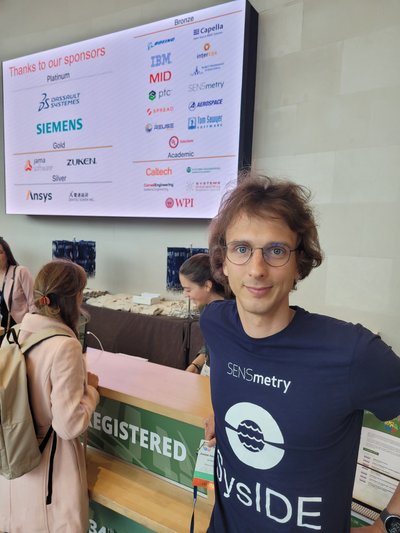In November of this year, the company was recognised as one of the four winners in the European Union and Japan space startup competition. Lithuania’s space industry is rapidly gaining global strength, and she encourages emerging startups to actively participate in European Space Agency (ESA) programs, according to Eglė Elena Šataitė, head of Space Hub LT at Innovation Agency Lithuania.
"Winning in Japan has brought greater recognition and confirmed that space technologies developed in Lithuania are mature and relevant, suitable for serious commercial projects," says Dr. Juozas Vaicenavičius, founder and CEO of Sensmetry.
According to him, the recognition at this prestigious Asian business event has opened all doors for the company – they have established contacts with the Japan Aerospace Exploration Agency (JAXA) and initiated numerous collaborations with companies not only in the space sector but also in other Japanese industries.
This is not the first achievement for Sensmetry. In spring, the company’s satellite management solution was recognized as the best in an ESA competition in Germany and also garnered significant attention at the leading global systems engineering event held in Ireland this year. Currently, over 3,000 space technology users in technologically advanced countries, particularly in the U.S., use a free version of Sensmetry’s IT software. The commercial product has already been implemented by over 100 companies worldwide, including well-known names, although confidentiality agreements prevent disclosure, according to the Sensmetry CEO.

Acts Like a Waze for Robotics
The Lithuanian technology that impressed Japan is the SysIDE system modeling IT tool, developed based on the latest SysML programming language. This language allows any engineering automation idea to be translated into commands understandable to robots. Using the Lithuanian IT tool, robotics solutions can be developed for areas requiring precise and complex solutions – space, automotive, manufacturing, medicine, and more.
"To put it simply, just as drivers use the ’Waze’ app to plan their routes, our systems engineering modeling language allows processes to be automated. Moreover, SysIDE not only helps plan the route but also creates the map itself," explains Vaicenavičius.
The SysIDE system has been recognised in Europe and Japan for enabling any automation process to be implemented more affordably, quickly, and efficiently than other existing IT programs. Notably, the system modeling language allows for the creation of a digital twin – a program that functions identically and in parallel to the real system. This enables not only the modeling of satellite operations but also testing and preparing them for real-world conditions.
"Once a satellite is launched into orbit, it cannot be continuously manually controlled, so everything must be meticulously designed on Earth. The system must operate autonomously with high efficiency and no errors. Japan, being a highly technologically advanced country where efficiency is deeply ingrained in the culture, has shown interest in our solution for both space and automotive industries," shares the Sensmetry CEO.
Currently, complex satellite constellations orbiting Earth are being managed and developed using Sensmetry’s systems.
Vaicenavičius expresses gratitude to the Innovation Agency Lithuania, the Ministry of Economy and Innovation, and the Ministry of Transport and Communications for their support in establishing themselves in the European and global space ecosystem. "It’s encouraging that the public sector observes, evaluates, and supports technological progress, enabling young businesses to innovate, develop, and contribute to the economy," says Vaicenavičius.
Startups Can Still Apply for EUR 1 million in Funding
Lithuanian space startups can still apply for a new, Lithuania-specific funding call worth EUR 1 million. This investment will go to companies and organizations operating or with potential in the space sector. The call will finance projects ranging from EUR 50,000 to EUR 400,000. Applications for space project funding can be submitted until 11 December.
"The growing international recognition of Lithuanian innovations demonstrates that our companies are rapidly strengthening their position in the global space sector. This motivates us to encourage other research centers, higher education institutions, and private businesses in Lithuania to boldly pursue their ideas, as we already have several success stories," says Šataitė.
Last year, EUR 1 million was allocated to eight space technology projects under the ESA funding program. In 2023, 26 companies submitted applications, compared to 10 in 2022. Šataitė hopes for even more applications this year under the ESA program and continues to urge innovation creators to engage more actively with the space ecosystem.
Last year’s ESA program funding recipients included companies and organizations such as Bioanalysis Systems, Geomatrix, Geld Baltic, Uvireso, Adscensus, the Center for Physical Sciences and Technology, and VILNIUS TECH.
